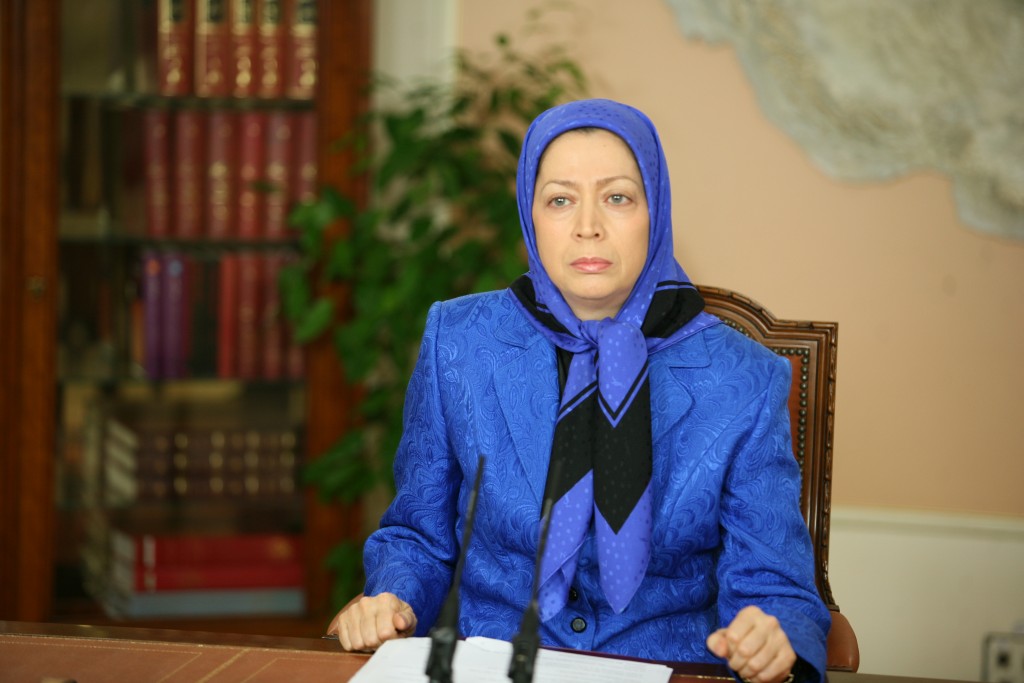The voice of those persecuted and executed

German weekly FOCUS Online – March 26, 2011- Ulrike Plewa
In an interview with FOCUS Online, Maryam Rajavi, an exiled Iranian politician, urged the West to adopt a stronger stance in support of the uprisings in the Arab countries. She also called on Germany to impose a trade embargo on Tehran.
FOCUS Online: Madame Rajavi, what do you make of the intervention by the Americans, the British and the French in support of the rebels in Libya?
Maryam Rajavi: I welcome it even though it was delayed. Military action is absolutely necessary in order to help the opposition against a despot who oppresses his people.
FOCUS Online: How do you see Germany’s decision to abstain from the vote in the UN Security Council?
Rajavi: It was disappointing for me. The Germans know how important such support would be for the people. I have a critical view of the fact that Germany has not played a more active role and has not adopted a clearer stance. This reluctance damages the international unity against the regime of Muammar Gaddafi. The West should lend stronger support for the uprisings in Arab countries and also for the growing opposition in Iran.
FOCUS Online: Is a war against the Libyan dictator with American and European involvement justified? Could it not trigger anti-Western sentiment in the Middle East?
Rajavi: The intervention is backed by a UN mandate. The continuation of the policy of appeasement towards dictators only serves to delay the establishment of freely elected governments. By taking this fearful attitude especially towards Iran, the West only facilitates the strengthening of Islamic fundamentalism and terrorism. Under the pretext of promoting stability in the region, there has been a silence for too long in relation to these kinds of governments. Look at Tunisia, where no one talked against President Ben Ali for 30 years, simply because he limited Islamists there. That was a wrong approach, especially since the greatest source for the expansion of fundamentalism is in Tehran.
FOCUS Online: Why did the West adopt such a contradictory position?
Rajavi: On the one hand, economic interests are a priority for the West. Iran is indeed an important trading partner. And worse, I see a lack of knowledge about the religious dictatorship ruling Iran. This regime cannot embrace reforms from within, which is something that the West should grasp. The West has always had a vain hope for reforms, first with Rafsanjani, and then with Khatami. This is while the situation for the people there continues to deteriorate.
FOCUS Online: Do you support sanctions and boycotts as a way of supporting the Iranian opposition?
Rajavi: The West should stop buying oil from Iran. Moreover, comprehensive sanctions on various products would also be desirable. Currently, German trade with Iran includes over 3,000 types of products. It has sold Iran about four billion euros a year worth of goods to Iran. These revenues are used (by the regime) to finance the repressive apparatus, to export terrorism and to build the atomic bomb.
FOCUS Online: Would the population not be hurt by the sanctions?
Rajavi: Sanctions would essentially be a step towards recognizing and lending moral support to the resistance movement there. Iran is a rich country, but 80 percent of its citizens currently live in poverty because oil revenues do not benefit the people. The Iranian people would support comprehensive sanctions because trade with foreign countries does not benefit them anyway. The clerical regime’s suppression of the Iranian people is far more brutal than Gaddafi. So, the international community must cut all ties with Tehran.
FOCUS Online: Do you see any reason now for hoping that the regime could be removed?
Rajavi: Yes, absolutely. Now is the time for hope. Even while Iranians are subjected to executions simply for taking part in demonstrations or visiting their relatives in the Ashraf refugee camp, despite the perpetration of such violence in Iran, uprisings continue and the people demand freedom, equality, and separation of church and state. President Mahmoud Ahmadinejad commits his crimes under the pretext of Islam and they perpetrate the worst type of suppression against women. This is how the Iranian people are suffering. Women constitute over half of the members of the National Council of Resistance of Iran and have elected a woman at the helm.
FOCUS Online: When was the last time you were in Iran and could you go back there?
Rajavi: The last time I was there was 29 years ago. Two of my sisters have been executed. If I were to go back to Iran, I would also be executed. Until democratic change is instituted in Iran, I will continue to work for such change from exile in Paris – as the voice of those persecuted and executed.
- Tags: execution, Iran, MEK, Middle East

